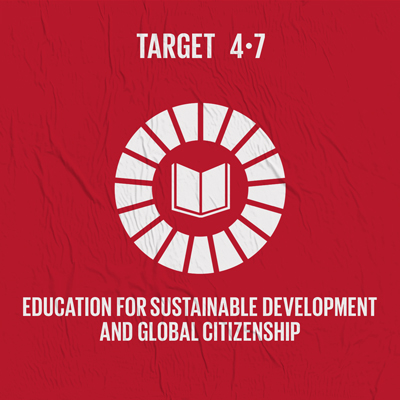Themes addressed
What we believe
Modern technologies, digital tools, and social media have come to permeate our daily life, bringing about several benefits, as well as many flaws. Far too often, the digital world has turned into a sounding board for hate speech and fake news.
GCE is currently facing a great challenge: there is an urgent need to train citizens aware of the global dynamics, beyond the media propaganda and alarms that abound in many European countries today. We need to involve all people in the construction of a fair and equitable society and in the exercise of their rights and responsibilities towards others.
We want to construct a non-superficial narrative on migration, promoting human rights and intercultural dialogue. We consider the involvement of the educational community crucial for an awareness raising among young people and the entire society. We trust in the capacity of new generations to build societies free from fear that foster equality and social inclusion.

What we do
MigratED intends to foster the willful use of technologies and their potential as inclusive tools when addressing sensitive topics: digital and multimedia tools become means for the creation of an inclusive and multicultural community, combating messages of hate, whilst promoting values of active citizenship and democracy among younger generations.
Through activities focusing on media literacy and education, research and participatory videos, young people tell their stories through video making and storytelling, promoting hospitality and inclusion. Conferences and workshops encourage young people to think about hate speech, languages used online and by media in narratives concerning migration issues. An online and offline awareness raising campaign involving youth, the education system, local communities and EU citizens, to make them more aware about GCE’s issues and a correct use of technology in teaching and promoting good practices on these themes.

What we ask
Considering the 2030 Agenda for Sustainable Development as a fundamental framework, our advocacy action aims at promoting GCE, as a necessary tool to achieve the 17 Goals of the 2030 Agenda and in triggering the cultural changes needed for the creation of fairer and more sustainable societies. GCE and inclusive learning represent a transformative educational action, based on the use of interactive and innovative teaching methods founded on dialogue and reflection, putting the learner at the centre.
With our actions and policy requests, we refer to Goal n. 4 on “inclusive and equitable quality education”, and particularly to Target 4.7:

As an EU consortium, we turn to local, national and EU institutional stakeholders and policy-makers to ask:
1) For the implementation of Global Citizens Education policies, with specific implementation strategies in each country, beginning with the local contexts in which the consortium works as a starting point for promoting good practices. A regulatory and institutional legitimacy of GCE would recognize it as the unique, concrete action capable of calling for an active role, as individuals and as a community, concerning the principles of environmental and social justice, promoting the understanding of decision-making processes at local and global level, as well as new ways of intervention and influence for the citizens.
2) For the adoption of forms of inclusive education in the formal school context, by foreseeing appropriate laws. Teaching on human rights, intercultural dialogue and on media-literacy should become a specific school subject or should be included transversally between the different courses. Training for teachers and educators on learning methods based on technology should be promoted, as well as the dissemination of good educational practices and teaching tools; finally, a minimum number of hours on these issues should be guaranteed in each school curriculum.